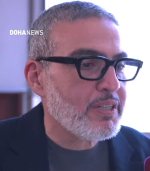
Teachers in London, the South East, and Wales staged a third day of strikes on Thursday, following similar action in the Midlands and northern England earlier in the week. The National
Education Union (NEU) estimates that around 200,000 members will have taken part in the three-day strike by the end of the week, with the "majority of schools" in affected areas either partially or fully closed. The NEU called the strikes in protest against government policies on pay and conditions, as well as a lack of investment in education. Education Secretary Gillian Keegan offered to hold formal talks with teaching unions on pay, conditions and reform, but only if the strikes were suspended. The NEU declined the offer, with further national strikes planned for 15 and 16 March.
The Ipsos poll found that 60% of parents and guardians supported the strike action, but 43% were concerned about their children falling behind on missed work. The strikes have caused disruption for millions of pupils and parents, and have led to picket lines outside affected schools, as well as rallies in cities including Cardiff, Chichester, Bristol, and Plymouth.
Dr Mary Bousted, joint general secretary of the NEU, expressed gratitude for the support of parents and guardians, adding that the strikes were necessary due to the government's "poor decision-making and short-sighted policies on education." Bousted also called on Keegan to start negotiating with the teaching profession to address issues in the sector. Geoff Barton, general secretary of the Association of School and College Leaders (ASCL), acknowledged the challenges faced by school leaders during the strikes, who have been managing provision for students according to expected staffing levels. However, Barton added that the government must "make a serious offer that addresses the long-running concerns over pay and conditions that have resulted in a recruitment and retention crisis in education."
The strikes are part of a wider protest by teaching unions in England and Wales over pay, workload, and conditions. The NEU has called for a 10% pay increase for teachers, and has criticised the government's handling of issues such as school funding, teacher recruitment, and accountability measures. The ASCL has also raised concerns about teacher workload, which it says is putting excessive pressure on staff and affecting student outcomes. The government has defended its record on education, pointing to increased funding for schools and the recruitment of more teachers in recent years. However, critics argue that more needs to be done to address systemic issues in the sector, particularly in light of the disruption caused by the Covid-19 pandemic.
In conclusion, the third day of teacher strikes in London, the South East, and Wales has caused disruption for millions of pupils and parents, with many schools partially or fully closed. The strikes are part of a wider protest by teaching unions over pay, workload, and conditions, and have been supported by a majority of parents and guardians. The government has offered to hold formal talks with teaching unions, but only if the strikes are suspended, a proposal rejected by the NEU. With further national strikes planned for later in March, the ongoing dispute between teaching unions and the government shows no sign of abating. Photo by Philafrenzy, Wikimedia commons.









































